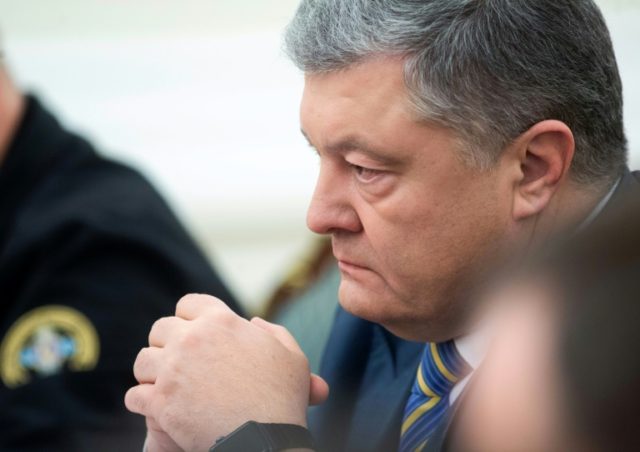Politico and other media outlets reported Thursday that former National Security Council (NSC) official Fiona Hill planned to tell the House Intelligence Committee that Ukrainian interference in the 2016 elections was a “fictional narrative.”
The problem: Politico, among others, reported in depth on what it called Ukraine’s efforts to “sabotage” then-candidate Donald Trump. Indeed, Politico has been cited repeatedly by Republicans in the impeachment inquiry.
In January 2017, Politico‘s Kenneth P. Vogel and David Stern published an article titled “Ukrainian efforts to sabotage Trump backfire.” The article was a lengthy investigative piece, exceeding 5,500 words.
Vogel and Stern reported:
- “A Ukrainian-American operative who was consulting for the Democratic National Committee met with top officials in the Ukrainian Embassy in Washington in an effort to expose ties between Trump, top campaign aide Paul Manafort and Russia”;
- “The Ukrainian efforts had an impact in the race, helping to force Manafort’s resignation and advancing the narrative that Trump’s campaign was deeply connected to Ukraine’s foe to the east, Russia”;
- “The ambassador, Chaly, penned an op-ed for The Hill, in which he chastised Trump for a confusing series of statements in which the GOP candidate at one point expressed a willingness to consider recognizing Russia’s annexation of the Ukrainian territory of Crimea as legitimate”;
- “Former Ukrainian Prime Minister Arseny Yatseniuk warned on Facebook that Trump had “challenged the very values of the free world”;
- “Ukraine’s minister of internal affairs, Arsen Avakov, piled on, trashing Trump on Twitter in July as a “clown” and asserting that Trump is “an even bigger danger to the US than terrorism”;
- “Chaly, the country’s ambassador in Washington, had actually instructed the embassy not to reach out to Trump’s campaign, even as it was engaging with those of Clinton and Trump’s leading GOP rival, Ted Cruz”;
- “‘It was clear that they were supporting Hillary Clinton’s candidacy. … They did everything from organizing meetings with the Clinton team, to publicly supporting her, to criticizing Trump. … I think that they simply didn’t meet because they thought that Hillary would win.'”
Yet Politico reported Wednesday that Hill would call Ukrainian interference a “fictional narrative,” and cited “GOP lawmakers” as pushing claims of Ukrainian interference that other witnesses “rejected”:
GOP lawmakers have sought to legitimize Trump’s skepticism of Ukraine by casting the government as “out to get” Trump during the 2016 campaign.
Other witnesses have similarly rejected those claims. Marie Yovanovitch, the former U.S. ambassador to Ukraine, said one data point Republicans point to — an effort to dig up dirt on Paul Manafort, the former Trump campaign chairman — was actually a campaign to tar Ukraine’s former pro-Moscow president, Viktor Yanukovych.
Republicans have also cited a 2016 op-ed by Ukraine’s then-ambassador to the U.S., who criticized Trump for suggesting that Russia had a right to annex Crimea, a move that drew international condemnation. Yovanovitch said “isolated incidents” do not suggest that Ukraine launched a government operation to harm Trump’s chances in 2016.
At no point did Politico acknowledge its own previous reporting.
Joel B. Pollak is Senior Editor-at-Large at Breitbart News. He earned an A.B. in Social Studies and Environmental Science and Public Policy from Harvard College, and a J.D. from Harvard Law School. He is a winner of the 2018 Robert Novak Journalism Alumni Fellowship. He is also the co-author of How Trump Won: The Inside Story of a Revolution, which is available from Regnery. Follow him on Twitter at @joelpollak.

COMMENTS
Please let us know if you're having issues with commenting.